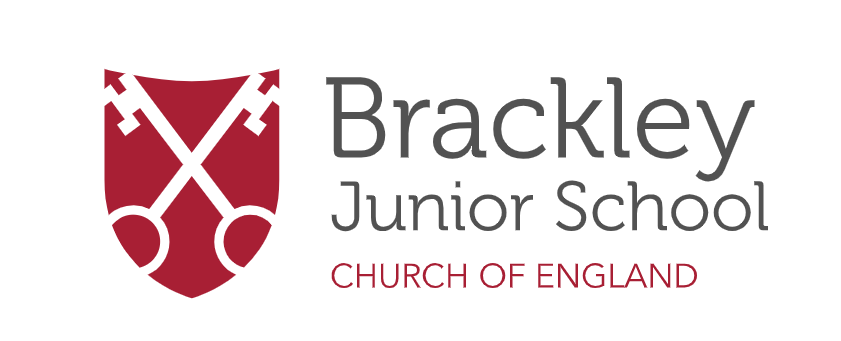Science
Curriculum Vision
At Brackley C of E Junior School we have designed our curriculum with pupils learning and development at the heart. We are committed to providing a curriculum that is broad, balanced and offers opportunities to grow. It is the school’s curriculum vision that teachers strive for academic excellence and encourage every child to reach the highest levels of achievement and personal development. We recognise that every child is unique - therefore we are dedicated to providing a curriculum that is inclusive and meets the needs of every pupil by supporting them in becoming the best they can be, regardless of their background, special needs, ethnicity or disability. We strive to create a friendly, caring atmosphere which is designed to help every child flourish and realise their full potential. The school staff value the different ways in which pupils learn and plan lessons to account for these differences. Through our curriculum we aim for all pupils to be prepared to live life in all its fullness. We want them to be aspirational for their future and recognise that through valuing and participating fully in their education, everyone has a place and can contribute to the wider community.
Subject Intent
At BJS, we intend that all pupils, irrespective of gender, leave KS2 equipped with a love and thirst for further learning in the three sciences, which will be developed in secondary school, along with a sound knowledge of possible jobs/ careers related to science and be inspired by famous scientists, both past and present. At BJS, we are committed to ensuring that all pupils, including those with Special Educational Needs, are fully supported in accessing a rich and inspiring science curriculum, enabling them to engage with hands-on investigations, develop scientific thinking, and foster a lifelong curiosity about the world around them. As a core subject, at BJS we intend to actively encourage children to become lifetime learners and keenly promote the fact that scientific knowledge and understanding will be increasingly important as we face up to the challenges of living in the modern world. All children are encouraged to develop and use a range of skills including observations, planning and investigations, as well as being encourages to question the world around them and become independent learners in exploring possible answers for their scientific based questions. At BJS, we build our cultural capital by learning how people from different cultures and times have contributed to important discoveries. During British Science Week, we celebrate a wide range of scientists whose work has shaped the world, helping us understand science as a global and inclusive subject. Outdoor Learning Week strengthens our cultural capital by encouraging curiosity, observation, and a deeper connection to the natural world around us. Specialist vocabulary for each unit is displayed, taught, included in knowledge organisers and built upon in subsequent lessons. We must, and do, follow the National Curriculum programme of study for science. Our intent is that all pupils cover the content that has been assigned to their Key Stage. At BJS, our planning follows the National Curriculum, with each unit directly planned this way. At BJS, we have previously used PlanBee, as a science scheme, but we are beginning to move away from this, ensuring our planning directly aligns with the National Curriculum but does not follow a set scheme. We assess Science through mid-term reviews, in the form of questions, a mind map or labelling of a scientific image. We then input this assessment into an assessment spreadsheet, where we explicitly state our next steps. These next steps build upon any misconceptions the children may have had or building on prior knowledge and will reflect any future learning of the unit.
Subject Implementation
The acquisition of key scientific knowledge is an integral part of our science lessons. Linked knowledge organisers enable children to learn and retain the important, useful and powerful vocabulary and knowledge contained within each unit. The progression of skills for working scientifically are developed through the year groups and scientific enquiry skills are of key importance within lessons. At BJS, teachers create a positive attitude to science learning within their classrooms and reinforce an expectation that all children are capable of achieving high standards in science. Our whole school approach to the teaching and learning of science involves the following:
• Science will be taught in planned, and arranged, unit blocks by the class teacher. Our strategy is to enable all children to be catered for through adapted planning suited to their abilities
• We plan for problem solving and real-life opportunities that enable children to find out for themselves. Children are encouraged to ask their own questions and are given opportunities to use their scientific skills and research to discover the answers. This curiosity is celebrated within the classroom. Planning involves teachers creating practical, engaging lessons with opportunities for precise questioning in class to test conceptual knowledge and skills, and assess children regularly to identify those children with gaps in learning
• Our curriculum is progressive. We build upon the learning and skill development of the previous years, which is tested through our ‘knowledge organiser quizzes’ where teachers can identify misconceptions that need addressing
• Working Scientifically skills are included on each unit of works’ knowledge organiser and are embedded into lessons to ensure these skills are being developed throughout the children’s school career, and new vocabulary and challenging concepts are introduced through direct teaching. This is developed through the years, in keeping with the units
• Teachers demonstrate how to use scientific equipment, and the various Working Scientifically skills in order to embed scientific understanding. Teachers find opportunities to develop children’s understanding of their surroundings by accessing outdoor learning where appropriate
• Through enrichment days, such as British Science Week and Outdoor Learning Week, we promote the profile of Science and allow time for the children to freely explore scientific units.

